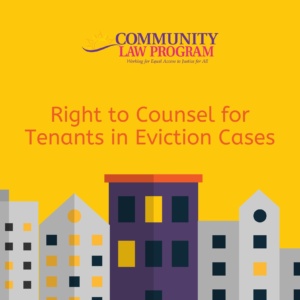
Almost 2 million Floridians have suspended driver’s licenses. In Pinellas County, in 2018, there were 31,731 “failure-to-pay” suspension notices, which is 4.09% of the 775,470 licensed drivers in the county. These were not necessarily dangerous drivers, they are people who cannot afford to pay the fines and fees imposed by the courts.
If you are unable to pay court costs, even with non-driving related matters, your license gets suspended. The choice becomes do not drive and potentially lose your job, get evicted, etc. or “drive dirty” (drive without a license) and risk criminal charges, more fines and fees, etc. The inability to pay the court costs and fines can start an avalanche of financial and legal trouble.
It’s easy enough to be dismissive of the predicament of the almost 2 million Floridians with suspended driver’s licenses. They should just not violate traffic and other laws, right? Step back and look at the big picture, it’s more complicated. The Fines & Fees Justice Center (FFJC) examined Florida’s “license-for-payment scheme” in its December 2019 report Driving on Empty: Florida’s Costly Driver’s License Suspension Practices. In this report, FFJC examines, in detail, the increase of types and amounts of fines and fees and how they have been relied on to fund the clerks across Florida. It also looks at how the driver’s license suspension and reinstatement process varies “widely” from county to county. It found that driver’s license suspensions disproportionately harm people of color.
Benjamin Stevenson, Staff Attorney with the American Civil Liberties Union (ACLU), points out another issue with Florida’s current suspension scheme: “Recognizing the necessity of driving in a modern society, Florida gives dangerous drivers a second chance and invites them to apply for a hardship license. Yet, the DMV forbids insolvent drivers who pose little highway safety concerns from also continuing to drive. This makes no sense.”
What’s the solution? The FFJC report offers the following:
CONCLUSION: FLORIDA MUST
END DEBT-BASED LICENSE
SUSPENSION
Florida’s current driver’s license suspension
methods are counterproductive, costly, and
further marginalize vulnerable communities. The
personal stories included in this report show that
each of the 1.1 million suspensions issued yearly
in the state are causing significant personal and
economic harms. And all Floridians pay the cost
of citing, arresting, and even imprisoning those
who drive with a suspended license, as well as
the loss of productivity and economic vitality in
the Florida economy.
Florida must reform its driver’s license
suspension policies to prevent the state from
punishing poor people simply for being poor.
Most importantly, the state must eliminate
automatic driver’s license suspensions
for nonpayment. But even if driver license
suspension policy was completely reformed in
Florida, the underlying structure of justice taxes
for government services would remain. That, too,
needs to change. 2
Community Law Program (CLP) partners with FFJC and the ACLU to help our Lawyers for Young Adults (LFYA) project clients address fines and fees that lead to driver’s license suspension. The LFYA project helps young adults, 18-24, who have aged out of foster care, with civil legal issues.
One young woman had $3,895.00 in legal financial obligations from a 2nd-degree misdemeanor she got when she was 19 years old. She was sentenced to 6 months probation and ordered to pay the full amount. When she was unable to do so, the money owed was converted to a civil lien and she was put on a payment plan of $10 per month. Due to her former partner’s abuse and relocating, she was not able to make the payments. Her driver’s license was suspended and the debt sent to collection, increasing the amount owed. She recently tried to get back on a payment plan and was told no. ACLU Attorney Benjamin Stevenson and CLP sent a request to the Clerk’s general counsel for a reasonable payment plan of $10/month and it was accepted. The Clerk’s office brought the debt back from collections and set up the payment plan. This young woman had been trying to address the debt and get her driver’s license reinstated on her own for several months. The free legal assistance provided by CLP and the ACLU paved the way for the client to get her license back.
If you’d like to help with CLP’s LFYA project or with any of our free legal advice clinics, call 727-582-7480.
1 The Fines & Fees Justice Center (2019) https://finesandfeesjusticecenter.org/articles/driving-on-empty-florida-drivers-license-suspension-fines-fees/
2 The Fines & Fees Justice Center (2019) https://finesandfeesjusticecenter.org/articles/driving-on-empty-florida-drivers-license-suspension-fines-fees/


